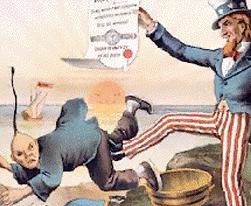Human Rights Expert Says Surviving the Holocaust Motivated His Career
The last question at the “On the Issues with Mike Gousha” program at Marquette Law School on Thursday with Judge Thomas Buergenthal went to a retired Milwaukee school teacher who painted a gloomy picture of the state of the world.
“Humanity is having a real problem,” she said. “These are horrible times right now.”
Buergenthal answered in a positive fashion: “You’re too pessimistic,” he said. “Things are happening. They’re not happening as fast as you and I would like it to happen. There are some bad things happening too. But overall, we are moving slowly, too slowly.” He mentioned efforts by the United Nations and regional human rights organizations around the world that he thought were having positive impact.
“We do more harm to these developments if we think they’re not working.” He said. “So the trick is to stay with it.“
Buergenthal has stayed with it for decades. He is an authority on international and human rights law and one of the youngest Holocaust survivors. He is an emeritus professor of law at George Washington Law School and a former judge of the International Court of Justice at the Hague – among many distinctions and accomplishments. And he is author or co-author of numerous books, including a memoir, A Lucky Child, about surviving Auschwitz as a child. In his early 80s, he is, in fact, one of the youngest survivors of the notorious Nazi concentration camp.


